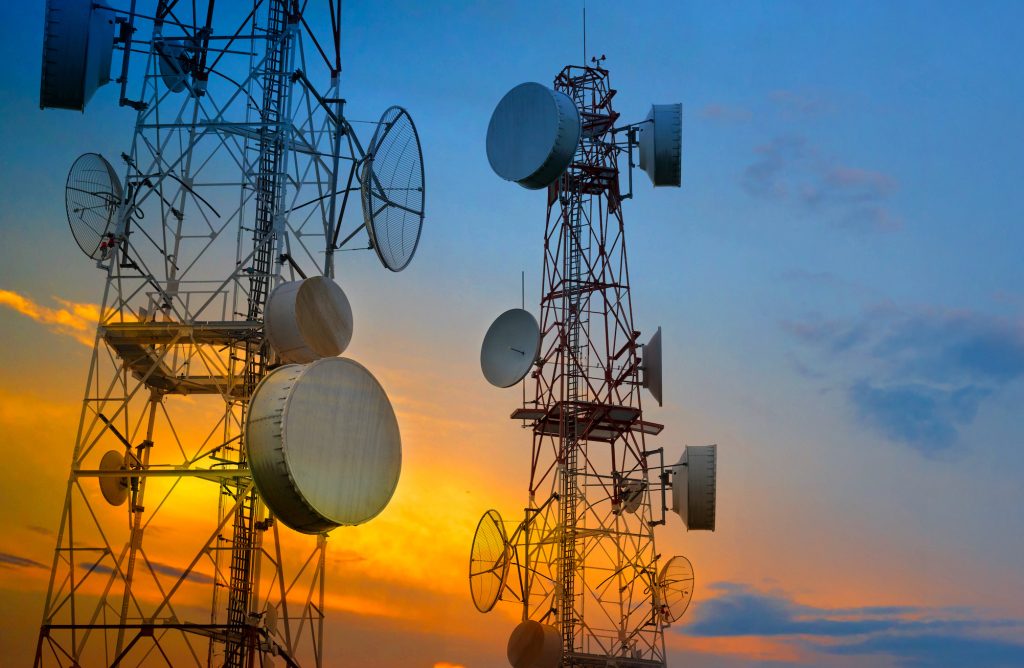High energy cost may erase profit margin in telecom industry

•Telcos consume 40m liters monthly
•Powers 30, 000 base stations with N536.2b
By Juliet Umeh
Nigeria’s digital economy runs on telecom infrastructure, but that backbone is being quietly weakened by a stubborn adversary which is the cost of power. At the heart of the crisis lies diesel, the fuel that keeps over 30,000 base stations across the country alive.
According to the Nigerian Communications Commission, NCC, operators consume over 40 million litres of diesel every month to maintain network stability.
For a sector hailed as the new lifeline of Nigeria’s economy, contributing over 14.4 percent to the gross domestic product, GDP in the first quarter Q1 of 2025 according to the National Bureau of statistics, NBS, the rising cost of diesel is more than an industry headache, it is a national economic risk. High energy costs are eroding operators’ margins, stalling network expansion, worsening service quality, and threatening price hikes that could lock millions out of the digital ecosystem.
NCC raises the alarm
Speaking at a recent industry dialogue, NCC’s Executive Vice-Chairman, Dr. Aminu Maida, did not mince words about the urgency of the problem.
He said: “The industry consumes over 40 million litres of diesel monthly. With the Dangote refinery now on-stream, we expect some relief. But if we don’t diversify beyond diesel, the sustainability of the sector remains at risk.”
Maida’s comments reflect a growing concern within government and industry circles: that the energy crisis could roll back gains Nigeria has made in broadband penetration, mobile money adoption, and digital inclusion.
Power is critical to Nigeria’s telecom sector, accounting for 20–30 percent of operators’ operating costs, according to the GSM Association, GSMA, the global body representing mobile network operators. Data from the National Bureau of Statistics, NBS, shows that diesel prices rose by over 220 percent between 2022 and 2024, and every one-hour power outage now disrupts mobile money and banking transactions nationwide.
Dangote refinery: A silver bullet or a mirage?
The coming on-stream of the Dangote refinery has generated cautious optimism. With local refining capacity, stakeholders hope the reliance on imported diesel priced in dollars can finally be reduced.
A telecom industry analyst, however, urged caution: “While it is true that Nigeria’s telecom industry relies on diesel to power its base stations, it’s puzzling that we are still importing fuel for this purpose. If refinery output is priced in Naira, the pressure on foreign exchange could ease. If not, operators warn that consumers will bear the brunt. Already, there are discussions between the NCC and the Central Bank of Nigeria, CBN, on frameworks to standardize costs around critical national infrastructure, including telecom energy use.
As one of the senior regulators put: “This is no longer just a private-sector problem. Telecom energy stability is now a national security and economic priority.”
How diesel costs hit banking and payments
The ripple effects are already evident in Nigeria’s financial system.
Chief Digital Officer at Lotus Bank, Akinlabi Adegoke, explained how the rising cost of keeping telecom towers powered translates into disruptions for ordinary Nigerians.
He said: “Keeping telecom networks alive on diesel is expensive, and those costs ripple through to digital banking services.
“Every Naira spent on powering base stations is a cost that eventually trickles down to customers, whether through transaction fees or service interruptions.”
For some industry players, with over 3.7 billion electronic payment transactions recorded in Q1 2025 according to Nigeria Inter-Bank Settlement System, NIBSS, the stakes are enormous. Telecom energy instability is not just about dropped calls; it threatens the backbone of Nigeria’s cashless economy.
Beyond diesel: A renewable push
For many experts, diesel cannot remain the sector’s default energy source. Hybrid and renewable alternatives are increasingly seen as both viable and urgent. The NCC has hinted at policy incentives for operators that adopt solar and battery systems at base stations.
Executive Director of the Consumer Advocacy and Empowerment Foundation, CADEF, Prof. Chiso Ndukwe-Okafor, stressed that Nigeria must look beyond short-term fixes.
Ndukwe-Okafor whose non-governmental organisation, NGO advocates adoption of solar, said: “Understanding the challenges we have in Nigeria in terms of energy access and production, it becomes really important that industries, not just telecoms, begin to look at alternative energy as their main supply.
“They can do this by setting up their own microgrids at different stations, powered by solar and, where possible, wind. Using IoT and AI for monitoring, today’s solar panels and technology are cost-effective and efficient.”
While acknowledging the steep upfront costs, she argued the economics make sense: “Yes, it will require an initial outlay of infrastructure. But evidence has shown that within two to three years, return on investment is realized.
“Beyond lowering costs, this shift reduces Nigeria’s overreliance on foreign exchange, creates jobs, and boosts local manufacturing. The government should incentivize not just assembly, but full-scale manufacturing of solar plants in Nigeria.”
Her call reflects a broader policy debate: whether Nigeria will continue to subsidize diesel through forex interventions or pivot decisively toward renewable infrastructure.
Meanwhile, operators are quietly lobbying for tariff reviews. They argue that without cost-reflective pricing, service quality will continue to deteriorate. The NCC has signaled it may allow adjustments but only under strict conditions that tie higher tariffs to measurable improvements in service delivery.
The post High energy cost may erase profit margin in telecom industry appeared first on Vanguard News.







